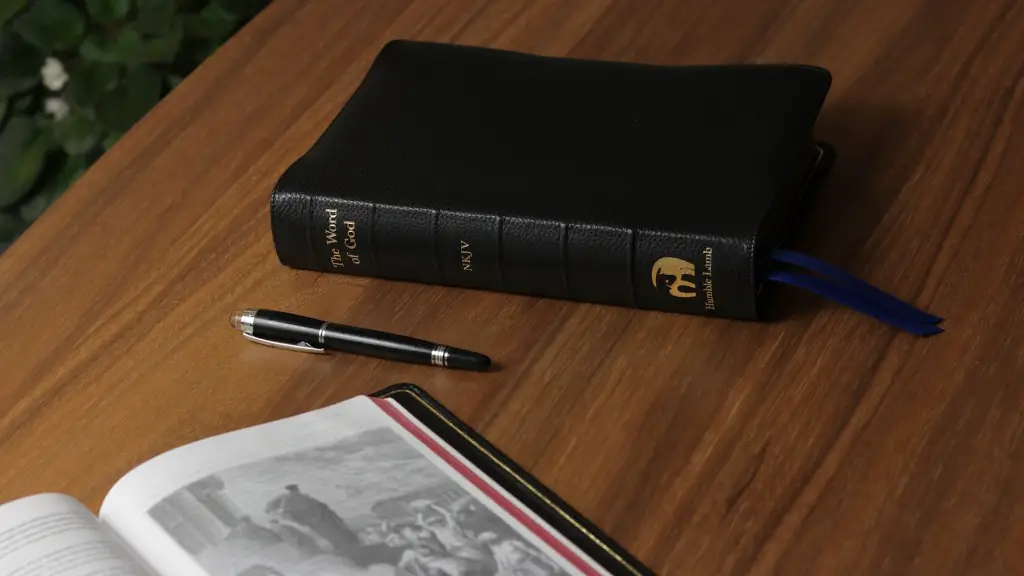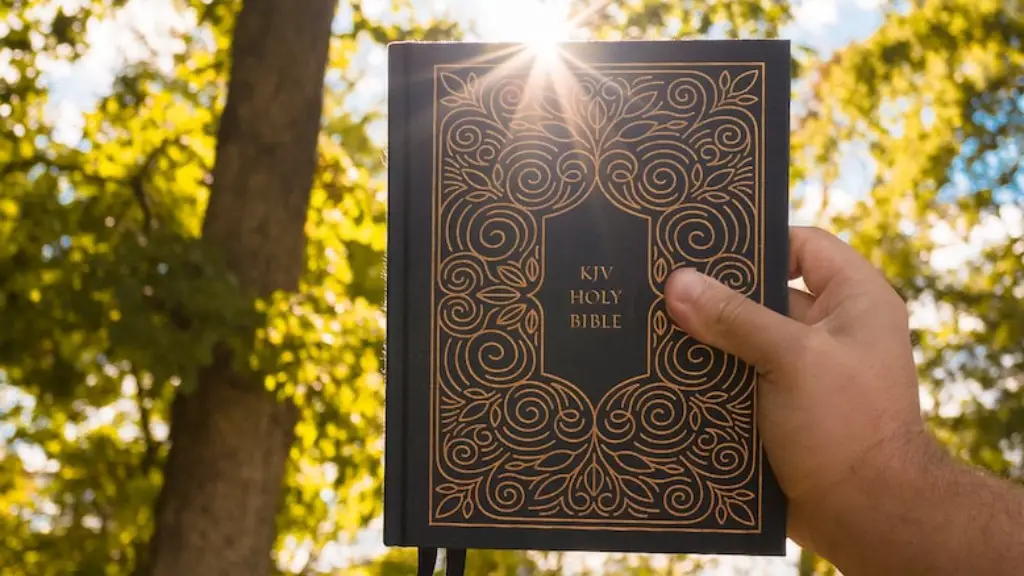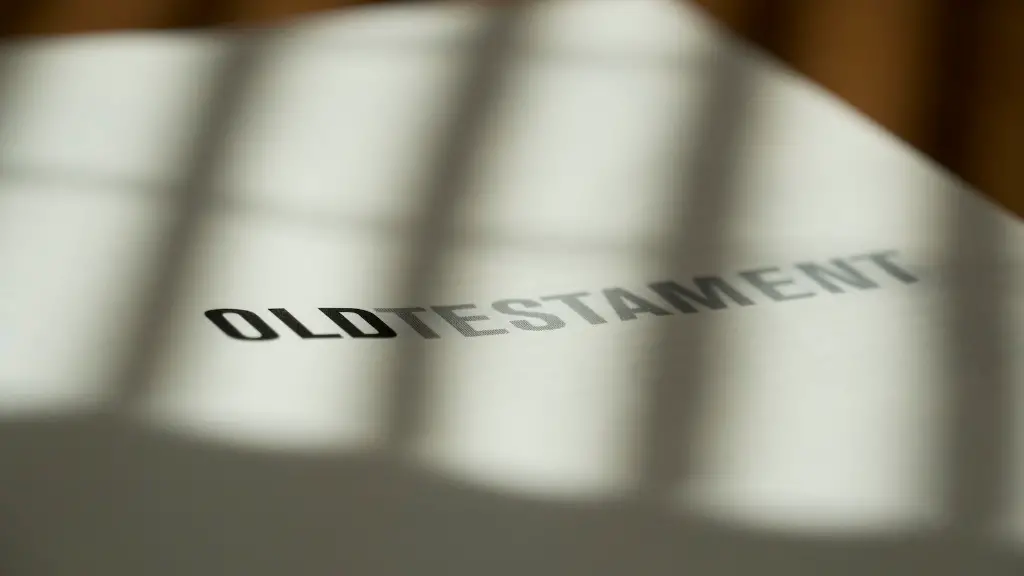The Bible does not specifically mention the wearing of makeup, but it does have a lot to say about outward appearances. For example, 1 Timothy 2:9 says, “Likewise also that women adorn themselves in modest apparel, with shamefacedness and sobriety; not with broided hair, or gold, or pearls, or costly array.” This verse is often interpreted to mean that women should not deck themselves out with ostentatious jewelry or expensive clothes. In the same way, it could be argued that wearing lots of makeup is also a way of trying to impress others with one’s appearance.
Another passage that is relevant to the wearing of makeup is 1 Peter 3:3-4, which says, “Whose adorning let it not be that outward adorning of plaiting the hair, and of wearing of gold, or of putting on of apparel; But let it be the hidden man of the heart, in that which is not corruptible, even the ornament of a meek and quiet spirit, which is in the sight of God of great price.” This verse goes a step further than 1 Timothy 2:9, and says that it is not just outward appearances
There is no specific mention of makeup in the Bible, but we can gain some insight into God’s thoughts on the matter by looking at what the Bible says about adornment in general. Scripture tells us that our true adornment should be found in our character (1 Timothy 2:9-10; 1 Peter 3:3-4). This is not to say that there is anything inherently wrong with wearing makeup, but we should be careful not to let our appearance become more important to us than our character. Additionally, we should be careful not to use our appearance to manipulate or deceive others (Proverbs 31:30). Ultimately, whether or not we choose to wear makeup should be a matter of personal conscience (Romans 14:1-12).
What religion does not allow makeup?
Apostolic Pentecostals are a very strict and conservative group of Pentecostals. They do not use alcohol, tobacco, or any other mind-altering substances. They also do not watch TV or movies, as they believe that these things can be a hindrance to one’s spiritual growth. Women who are Apostolic Pentecostals dress very modestly, with long dresses and no makeup or jewelry. They also do not cut their hair, as they believe that it is a woman’s glory.
It’s so important to not just try to make ourselves look good on the outside, but to focus on making ourselves beautiful on the inside as well. A gentle and peaceful spirit is something that is very precious to God, and it’s something that we should all strive for.
Where did makeup come from in the Bible
Cosmetics are mentioned in the Old Testament, such as in 2 Kings 9:30, where the biblical figure Jezebel painted her eyelids (approximately 840 BC) Cosmetics are also mentioned in the book of Esther, where beauty treatments are described.
Some people believe that the use of cosmetics is a form of self-expression and can be used to enhance one’s appearance. Others believe that the use of cosmetics is a way to cover up one’s true self.
What do you think? Do you think that the use of cosmetics is a form of self-expression or a way to cover up one’s true self?
It is important to remember that true beauty comes from within. We should adorn ourselves with qualities such as a gentle and quiet spirit, which are of great worth in God’s sight. Let us not be concerned with outward appearances, but rather focus on inner beauty.
Is it wrong to not wear makeup?
There are plenty of reasons to not wear makeup, and most of them have to do with feeling more comfortable and confident in your own skin. Makeup can be a hassle to apply, and it’s not always necessary to feel beautiful. In fact, many women feel more beautiful when they don’t have any makeup on at all. Here are some of the benefits of not wearing makeup:
1. You’ll save time in the morning.
2. Your skin will be able to breathe better.
3. You’ll avoid exposing your skin to potential irritants and allergens.
4. You’ll give your skin a break from all the chemicals in makeup products.
5. You’ll look more natural and approachable.
Of course, there are also times when wearing makeup can be fun and empowering. But ultimately, it’s up to you to decide what makes you feel the most beautiful. If you’re not into makeup, that’s perfectly okay!
Many hold the belief that wearing makeup is purely in vain, to attract the attention of others. However, makeup empowers a woman to present herself in exactly the way she chooses. She is the one deciding, which contributes to her self-esteem. Makeup doesn’t just transform you on the outside, it can also boost your confidence on the inside.
Is beauty a gift of God?
Beauty is one of the many attributes of God that we can express in our real being. By claiming it as God’s gift to us and exercising it, beauty can enhance every aspect of our lives. Let us never forget that beauty is a divine quality and, as such, is to be treasured.
In 1 Corinthians 11:4-5, Paul emphasizes the importance of subjection to God’s authority. He states that a woman’s long hair is given to her as a covering, or veil. This covering is a symbol of her subjection to God’s authority. Paul goes on to say in verse 15 that a woman who does not wear a veil is dishonoring her head. This is because she is not subject to God’s authority.
Does the Bible say not to look for a wife
If you are looking for a wife, do not marry. However, if you do marry, you have not sinned. If a virgin marries, she has not sinned. But those who marry will face many troubles in this life. I want to spare you these troubles.
6,000 years ago, Egyptians used makeup as a marker of wealth to appeal to the gods. The elaborate eyeliner characteristic of Egyptian art appeared on men and women as early as 4000 BCE. Today, makeup is worn for a variety of reasons, from religious and cultural reasons to simply for personal preference. Thanks to its long and fascinating history, there is no shortage of interesting stories and facts about makeup.
Who wore makeup first?
The Egyptians were one of the first cultures to use makeup as a way to enhance their appearance. They believed that makeup was next to godliness and that it would appeal to the gods. Both men and women of all social classes wore makeup.
In the 15th century, makeup was seen as the work of Satan by some churches, and women were restricted from using it. However, certain churches didn’t object to its usage, as they saw it as a way to alter one’s appearance and challenge the work of God.
Does the Bible say beauty is vain
A woman who fears the Lord is to be praised! Charm is deceitful and beauty is vain, but a woman who fears the Lord is to be praised. She is a woman of strength and dignity, and she can laugh at the days to come. She is not afraid of anything because she knows that the Lord is her strength.
A happy heart makes for a cheerful face, but a crushed spirit shows through in a person’s eyes.
What does the Bible say about art and beauty?
beauty is a language that everyone can understand, regardless of culture or background. it is a way for us to share in the joy that God experiences when He looks at His creation. when we take the time to appreciate the beauty around us, we are reminded of the goodness of our Creator and the love He has for us.
It’s interesting that there is conflicting research on whether or not wearing makeup makes women appear more trustworthy and competent. The most recent study seems to suggest that both men and women think women look better without makeup. Whether or not women should wear makeup is ultimately a personal choice, but it’s interesting to see what the research says on the matter.
Conclusion
The Bible does not say anything specifically about wearing makeup. However, there are some principles that can be gleaned from Scripture that may apply to the question. For example, 1 Timothy 2:9 says, “Likewise also that women should adorn themselves in respectable apparel, with modesty and self-control, not with braided hair and gold or pearls or costly attire.” This verse seems to indicate that it is more important for a woman to be modest and self-controlled in her clothing and appearance than to try to be flashy or overdone. Additionally, Proverbs 31:30 says, “Charm is deceitful, and beauty is vain, but a woman who fears the Lord is to be praised.” This verse teaches that a woman’s true beauty comes from her character, not from her outward appearance. So, whether or not to wear makeup is a personal decision, but these verses show that the Bible values modesty and inner beauty above all else.
The Bible does not say anything specifically about makeup, but it does have a few things to say about how we should treat our bodies. For example, 1 Corinthians 6:19-20 says, “Do you not know that your bodies are temples of the Holy Spirit, who is in you, whom you have received from God? You are not your own; you were bought at a price. Therefore honor God with your bodies.” This verse reminds us that our bodies are not our own, but they belong to God. We should take care of our bodies and not do anything that would dishonor God. Additionally, 1 Timothy 2:9-10 says, “Likewise also that women should adorn themselves in respectable apparel, with modesty and self-control, not with braided hair and gold or pearls or costly attire, but with what is proper for women who profess godliness—with good works.” These verses tell us that we should be modest in our dress and not try to show off our wealth. So, while the Bible does not say anything specifically about makeup, it does give us some principles that we can apply to the question of whether or not we should wear it.





